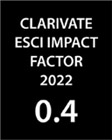Research programme on the Vehicle Industrial District in Győr
DOI:
https://doi.org/10.17649/TET.28.2.2639Keywords:
Győr, automotive industry, industrial districtAbstract
Hungarian regional studies have not addressed the topic of industrial districts in recent years. Since Hungary’s transition to market economy, the only important industrial region to emerge in addition to Budapest was Győr and its surroundings. Győr is a traditional industrial town. It is located close to the center of the triangle formed by Vienna, Bratislava and Budapest.
Győr has been one of the headquarters of automotive industry in Central and Eastern Europe. On Audi’s Hungarian site, two million engines and a hundred thousand cars are produced every year. Many suppliers are connected to the automotive industry in this area. However, other innovative companies can be found in the town and the surrounding area as well.
Széchenyi István University is also located here. The academic profile of this institution is focused on automotive industry and transportation systems. Our research team has conducted several research projects on the location factors and supplier relations of this sector in Hungary and in CEE countries. Based on former research projects, in autumn 2012 we successfully launched the new research programme: Győr Regional Vehicle Industrial District as a New Direction and Instrument of Regional Development (TÁMOP-4.2.2.A-11/1/KONV-2012-0010). We expect to complete this project by autumn 2014.
The theoretical objective of this project is to provide a conceptual model of growth centers as a new instrument of regional development. We examine the theoretical basis of location and spatial economy as well as the process of district formation. We discuss the role of the state and local governments in establishing districts. The project analyzes European urban development, highlights the specific characteristics of Central and Eastern European urban regions, and describes changes in Hungary’s urban network structure. This issue summarizes the findings of the theoretical component of our research programme.
The empirical component traces the development of Győr and the surrounding region. It describes the development of the local economy in the 20th century and analyzes the transformation of economic structures since Hungary’s transition to market economy until today. We study the regional impact of the agglomeration of urban functions and public utilities. The social structure of the town and its surrounding region is also carefully examined because this information is essential to a reliable assessment of future development.
To summarize, we describe a successful center of Hungarian modernization and assess possible development trajectories. At a theoretical level, the research programme is also expected to contribute to the research methodology of studying urban development.
Downloads
Published
How to Cite
Issue
Section
License
Authors wishing to publish in the journal accept the terms and conditions detailed in the LICENSING TERMS.






